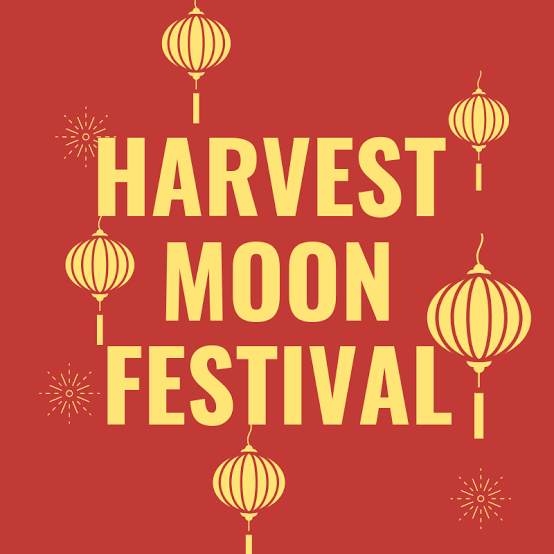Harvest Moon Festival – September 10, 2022, history, quotes,
It’s time to feast and then feast some more on South Korea’s Harvest Moon Festival, also known as Chuseok or Hangawi, which is celebrated on the 15th of the eighth lunar month — this year on September 10. One of the most important festivals of the year in South Korea, celebrations for Chuseok include spending time with family while eating Korean delicacies. If you’re thinking the celebrations for Chuseok sound similar to Thanksgiving celebrations, it’s because this festival is actually Korean Thanksgiving!
HISTORY OF HARVEST MOON FESTIVAL

Korea was initially an agricultural society. During the harvest season, they would worship the full moon, giving thanks for a plentiful harvest. The women in each family would prepare a table full of newly harvested rice and fruit, in an ancient tradition called ‘charye.’ The origins of Chuseok can be traced back to this custom.
However, Korean legends tell a different story. According to one such legend, Chuseok found its origins in a weaving competition between two princesses from the Silla dynasty. The two royals were tasked with creating cloth and the one who could weave the most would win the competition. The losing side would also have to prepare a feast for the victor. This competition lasted for a whole month, culminating on the 15th day of the eighth month on the lunar calendar during the full moon. As the story goes, multiple archery and martial arts competitions were also held as a part of the celebrations, explaining how this tradition came to be a part of the festivities.
Another legend tells the tale of Silla’s defeat of its rival country, Baekje. The Baekje king found a turtle with odd markings on its shell, which his advisers took to mean “Baekje full moon, Silla half-moon”. They interpreted this to mean that the kingdom of Baekje would fall and the Silla dynasty would rise and, hence, we see continuing importance being given to the moon during festivities, even to this day. On the other hand, some scholars believe Chuseok was actually adapted from ancient shamanistic rituals involving the harvest moon and its worship.
HARVEST MOON FESTIVAL TIMELINE
57 B.C. – 935 A.D.
The Legends Originate
Multiple legends credit the Silla or Shilla dynasty as a possible cause for the Chuseok festival.
1960s
New Gifting Traditions Begin
Korean people start sharing daily necessities like soap and condiments as Chuseok gifts.
Mid-1980s
North Korea Gets In
The ideology that divided Korea also differentiated their celebrations; it was only from this period that North Korea started celebrating Chuseok, too.
21st century
Gifting is Modernized
Gift sets are more extravagant now than ever before and gifting is now a big business in Korea.
HARVEST MOON FESTIVAL ACTIVITIES
Visit your deceased loved ones
Chuseok celebrations also include Koreans spending time honoring their ancestors, holding ancestor memorial services (‘Charye’), and visiting family graves (‘Seongmyo’). You too could use this time to remember the loved ones who are not with you anymore. Plan a quick visit to their memorial sites, or revisit special memories of the deceased.
Spend time with family
Like the American Thanksgiving, the Chuseok tradition mainly involves spending time with family, both immediate and extended. Celebrate this holiday with your loved ones and families, but make sure to plan ahead in case you are traveling, as this holiday usually falls on the weekend.
Cook a traditional Korean dish like ‘Jeon’
Whip up a scrumptious batch of Korean pancakes or ‘Jeon,’ which are made by slicing up fish, meat, eggs, and vegetables, and frying them in a batter of flour and eggs. This dish tastes the best with a dip made of soy sauce and vinegar or traditional Korean beer if you can get your hands on some.
5 INCREDIBLE FACTS ABOUT CHUSEOK
Korean Thanksgiving is also about food
A large part of the Harvest Moon Festival traditions includes food — preparation and consumption — especially traditional dishes that are ‘offerings’ to ancestors.
The traffic is insane
To reach their families, over half the Korean population takes to the roads, causing one of the biggest traffic jams of the year.
No food, no festival
The universal rule is no food, no party.
Eat, pray, and play!
After a big meal, rather than resting, people get up and participate in activities.
The ‘Ganggangsullae’ Dance
This traditional dance is performed by women under the bright moon for a bountiful harvest.
WHY WE LOVE HARVEST MOON FESTIVAL
It’s another day to cherish our families
We can never get enough of these special days dedicated to celebrating the bonds of family. We love any excuse to come together to share a meal and stories, whether physically or virtually.
Seeing the similarities and embracing the cultural differences
While Chuseok bears multiple similarities to Thanksgiving and various harvest festivals, its celebrations are unique to Korea. Every time we learn about ‘Songpyeon,’ a traditional Korean rice cake, or watch ‘Ssireum,’ a traditional wrestling sport, our horizons and cultural boundaries expand even more.
Learn about new traditions
Every festival brings with it its own cultural flavor in the form of stories, games, dances, and even music. Chuseok is no different. Games like ‘juldarigi’ or tug of war, and ‘Ssireum’ or Korean wrestling are a gateway into new experiences.
HARVEST MOON FESTIVAL FAQS
What is ‘happy Chuseok’?
The traditional Korean greeting “Jeulgeopgo haengbokan chuseok bonaesigil baramnida” roughly translates to, “We wish you a wonderful and happy Chuseok”.
Why do we celebrate Chuseok?
The full harvest moon appears on the occasion of Chuseok, under which families gather to celebrate and express gratitude for a bountiful harvest.
What do people eat on Chuseok?
Songpyeon is the traditional dish eaten on Chuseok. It is a half-moon-shaped rice cake filled with sweetened sesame seeds and nuts.



